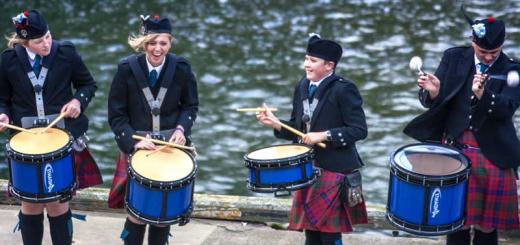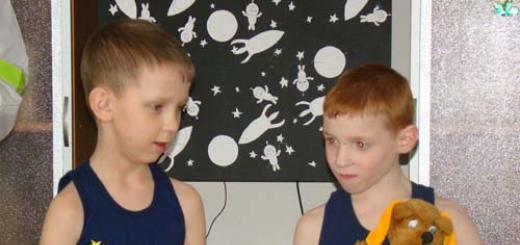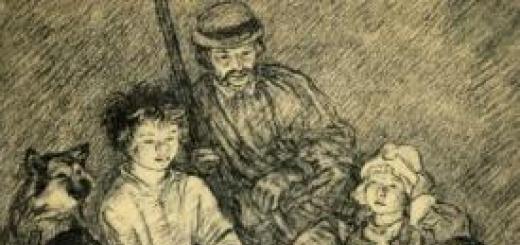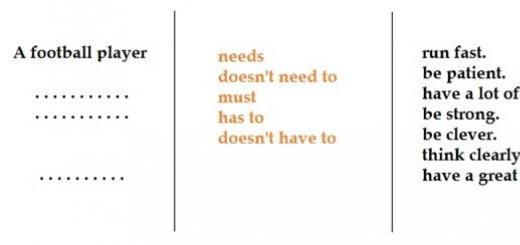What's happened compound predicate?
A compound predicate is a predicate in which lexical meaning and grammatical meaning are expressed not in one word, but in different words. The lexical meaning is expressed in the main part, and the grammatical meaning (tense and mood) is expressed in the auxiliary part.
Wed: He sang He started singing (composite verbal predicate); He was sick two months(regular verb predicate). - He was sick two months(composite nominal predicate).
What is a compound verb predicate?
A compound verbal predicate is a predicate in which the lexical meaning is expressed by one verb, and the grammatical meaning by another.
What parts does a compound verb predicate consist of?
A compound verb predicate consists of two parts:
For example: I started singing; I I wish to sing; I I'm afraid to sing(started, wish, fear- This auxiliary part of the predicate, infinitive sing- this is the main part).
Note. It can be used both in the auxiliary part and in the place of the infinitive phraseological unit:
He glowing with impatience participate at the conference(= wants to participate).
He willing to accept the role at the conference(= wants to participate).
He eager to take on the role at the conference(= wants to participate).
Auxiliary verb meanings
Common verbs and phraseological units
Examples
1. Phase (beginning, continuation, end of action)
Start, become, start, continue, finish, stay, finish, quit, finish etc.
He began to prepare to leave.
He continued to prepare for departure.
He quit smoking.
He again began to talk about the hardships of rural life.
2. Modal meaning (necessity, desirability, ability, disposition, sensory assessment of action, etc.)
To be able, to be able to, to lust, to wish, to dream, to intend, to give up, to try, to try, to count, to be able to, to manage, to try, to believe, to get used to, to hurry, to be embarrassed, to endure, to adore, intolerant, to be afraid, to be afraid, to be cowardly, to be ashamed, to set a goal , to burn with desire, to have the honor, to have the intention, to make a promise, to have the habit etc.
I can sing.
I wish to sing.
I'm afraid to sing.
I love to sing.
I'm ashamed to sing.
I'm looking forward to singing this aria.
How to find syntactic role infinitive?
Not any combination of a conjugated verb with an infinitive is a compound verbal predicate. In order for such a combination to be a compound verbal predicate, several criteria must be met:
Predicates expressed by the complex form of the future tense of the verb are not compound verbs: I'll be there tomorrow I'll work (this is a regular verb predicate).
What is a complicated compound verb predicate?
The aggravation occurs due to the consumption of additional modal or phasic verb(s) as part of a compound verbal predicate (see table above): I started to want to eat .I felt that soon I might start to want to eat (additional verbs are underlined).
What are atypical cases of the structure of a compound verbal predicate?
I was ready(not averse, able) wait.
Exercise on the topic “Differentiating between ordinary and compound verbal predicates.Syntactic role of the infinitive»
Exercise: Highlight the grammatical bases of sentences. Determine the class of predicates. Determine the syntactic role of the infinitive.
1. He was afraid to go to the doctors.
2. A servant came to call me to the princess.
3. The old woman left to take care of the departure.
4. He asked me to arrange for his departure.
5. The great state poet knows how to force both the master and the man to speak in their own language.
6. I respect native land I try to teach them.
7. No amount of effort will allow a person to convey the charm of this day.
8. In Moscow I will neither see you, nor write to you, nor call you.
9. The rarest drops of rain began to knock heavily on the ground.
10. The autumn rain will drizzle for a long time.
11. And as if in response to her words, the rarest and warm rain quietly begins to rustle along the river and bushes.
12. Behind the gate, dense, neglected alleys immediately began.
13. The most sinister rumors began to circulate.
14. They continued to sniffle, doze and yawn for 10 years.
15. The sea periodically completely stopped making noise.
16. And the blizzard, as if mocking, did not want to subside.
17. Antonenko gave the order to people to leave the barge.
18. I will not allow you to respond poorly to life in my presence.
19. Tagilov did not go to Natalya’s for breakfast.
20. She didn’t even have time to say hello to him.
Source of material Internet site
Additionally on the site:
Predicate along with the subject is an element grammatical basis offers. The predicate denotes the action that the subject performs, as well as its state or attribute, therefore, the predicate answers questions what to do? what to do? what happens to the item? what is the subject? what is he? Who is he? As a rule, the predicate is expressed by a verb, but there are other ways of expressing it - noun, adjective, pronoun, participle, etc.
The predicate of the Russian language is represented by three types - simple verbal predicate, compound verb and compound nominal. In order to quickly and correctly determine the type of predicate in a particular case, it is necessary, firstly, to present a diagram of the composition of the predicate, and secondly, to be able to apply the theoretical scheme to a specific linguistic material. Let's look at the types of predicates, briefly describe each of them and follow the implementation with an example.
1. Simple verb predicate.
This is the simplest type of predicate - it is expressed by a verb in some mood. For example, he plays; would have come earlier etc. Most often, this type is remembered using the formula: one word in the predicate, which means the predicate is a simple verb. It is not difficult to guess that this formula is erroneous: this type includes predicates that contain 2, 3 or even more words. For example:
He will for a long time recall about the past(future complex).
Let stars forever illuminate your long, long winter journey(imperative).
He lost his temper (phraseologism).
They waited, waited And didn't wait (repetition of one verb in different forms).
Spring waited, waited nature(repetition of the same verb forms).
Don't be offended, but it will still be in my opinion(repetition of one verb with the particle not).
I'll go for a walk (a combination of different verbs in the same form).
2. Compound verb predicate.
This predicate is built according to the scheme: auxiliary verb + infinitive. All these elements must be present in the predicate so that we can call it a compound verb! Again, you should not think that this predicate consists of 2 components - there may be more of them.
He wants to enroll to the institute.
I'm long couldn't with them meet.
You must study.
He was looking to have fun.
I was unable to think about this.
Note that phase verbs (those that denote the phase of action) most often act as auxiliary elements - start, continue, become, quit) or modal words ( must, must, wants).
3. Compound nominal predicate.
Such a predicate consists of a linking verb and a nominal part. The most common linking verb be, but you can also find other connections. The nominal part is expressed as an adjective. Noun, adverb, participle, pronoun, etc.
Weather was good.
The book is true Friend.
He has character harder steel.
Grass beveled.
Evening quiet.
Error was obvious.
Twice two - four.
This notebook my.
As you can see, determining the type of predicate is not a difficult task; you just need to confidently and completely know the material and, most importantly, be able to navigate it.
blog.site, when copying material in full or in part, a link to the original source is required.
A compound verb predicate is
predicate consisting of a personal form of auxiliary
a long verb and an infinitive. Lexical meaning of the phrase
what is meant is expressed by an infinitive, auxiliary
verbs indicate mood, tense, person and number
lo, that is, they convey grammatical meaning.
Verbs of two types act as auxiliary verbs.
semantic groups:
1) phase verbs denoting the beginning, continuation
the beginning or end of an action (to begin, to begin, to become,
become, continue, stop, finish, etc.):
And at dawn at the station the batteries began to fumble
People. (N. Ost.) Biting his lip, he continued walking,
getting to the forest road. (B. Paul.) The rain stopped
drizzle. (Kaig.);
2) modal verbs denoting possibility,
impossibility, desire, desire, etc. (be able, want-
aunt, desire, strive, prepare, intend
etc.): I am very sorry for his youth, and I want his
take her to death. (N. Ost.) The pilots sought
distract the enemy from the attack aircraft. (B. Pol.)
Auxiliary verb and infinitive in a compound
predicate denote an undivided action, complete
created by the same subject. If you conjugate
a verb and an infinitive denote two independent
different actions of the same subject or action
different subjects, the infinitive is secondary,
nal member of the sentence - the circumstance of the goal (with and
verbs of motion) or by addition: Three in sailor-d
They flew in peacoats to tame the Angara. (Sand.) |
Mom asked the neighbors in the compartment to look after \
me. (Paust.) In the first example, the conjugated verb and
the infinitive denotes two dismembered actions of one
of the subject (three), infinitive - adverbial
goals. In the second example, the action of the conjugated verb
and the infinitive refers to different subjects: ask-
la mama, the neighbors will be watching, infinitive -
addition (mom asked for what? - look-
As an auxiliary component in the composition -
Nominal verbal predicate can also act
short adjectives (must, glad, intends, able-
ben, ready, etc.) in combination with a verb link,
which indicates the tense and mood of the predicate:
I was ready to cry, feeling sorry for my garden and hut. (M.G.)
Oh, as a brother, I would be glad to embrace the storm! (L.) I know
meaning of the present tense of the indicative mood
expressed by a zero copula: I am ready to do everything; I
ready to work any job - in each of them
its own charm, its own poetry, its own happiness. (B.G.)
Auxiliary component in a compound verb -
nom predicate can represent a stable
verb phrase that does the same thing
role as the auxiliary verb: He had no right
risk and therefore walked carefully, avoiding
covered places. (B. Vas.)
In some cases, a compound verb predicate
mine takes on a complicated form. In it, except
auxiliary verb in personal form and infinitive
va, another infinitive with modal or is included
phase meaning: Mischievous... wanted to continue
play naughty (Ch.) He tried to force himself to get used to
wrestle with a difficult thought. (Sim.)
§ 134. Compound nominal predicate
A predicate consisting of a verbal connective and a noun
no part is called a compound nominal.
The copula expresses the grammatical meaning of the predicate,
and the nominal part is lexical: The highway leading to the city
Well, it was deserted. (N. Ost.) The forest seemed to him
the ultimate green sea. (B. Pol.)
There are three types of connectives: 1) abstract; 2) according to
distracted; 3) significant.
The first type includes the most common
nenny connection to be. She is completely devoid of vocabulary
meaning and expresses only grammatical meaning
the meaning of time and mood characteristic of the predicate,
and also establishes a connection between the nominal part and the subject
to those pressing: The dugout was empty. (B. Paul.) We are forever
We will be young and we will live forever. (Tereshch.) But, you see
brother, be generous! (P.) Characteristic feature
The main feature of the Russian language is the absence of connectives in
present tense, i.e. zero connective. She fulfilled
takes the same grammatical role as the copula be -
indicates the tense and mood of the predicate. Wed:
Outwardly everything is calm here. (N. Ost.) - Externally here
everything was calm. Use in the present tense
there are ligaments (in plural- essence) note-
appears very rarely in bookish and written speech: Simply
yes there is necessary condition beautiful. (L.T.) Pre-
presentation and teaching are the means of education
nia. (L.T.)
The second type of connectives includes semi-signal
nominative verbs: seem, appear, remain-
xia, become, become, do, introduce,
grammatical role, they at the same time co-
store weakened lexical meaning. So, gla-
the goal becomes, being a link, shows post-
foam formation of this feature. Wed: It was night
dark. - The night was getting dark.
Significant connectives are
verbs that, acting as connectives, completely
retain their lexical meaning. These include
verbs of movement and state (walk, wander, come)
go, run, return, sit, lie,
stand, wake up, etc.): The girl came tired,
pale. (B. Paul.) Alexey climbed out of the cab silently -
gloomy and gloomy. (B. Paul.) Nobody said anything,
Everyone stood stern and silent. (A. Iv.)
The same verbs can be full signifiers
nominative (act as a simple verbal decimal
student) and may lose or weaken lexical
meaning (used as connectives in a compound
predicate). Wed:
Simple verb
predicate
Linking verb in compound
nominal predicate
It was late evening. (A. Iv.)
quiet, meek...
It was evening
Water appeared on the streets.
After Yalta with its lush embankment
Alushta seemed like a cutter to me;
boring. (Paust.) ^"
Conversation on German hour
It became noisier as time went on. (P.)
The night was late and dead.
Not everything is done that is said
rushes. (Ate.)
The boat stood under the branches of the
tel. (Goat)
The nominal part of the predicate can be attached to
to the subject with the help of particles it is, here, compare-
telny unions as. as if, as if, as if, exactly
etc., revs none other than; nothing more than,
which are part of the predicate: Mind is spirit-
new human weapon. (White) Madness of the brave -
this is the wisdom of life. (M.G.) The road was like an alley.
(N. Ostr.) Courage is nothing more than a feeling
self-confidence. (K. Ush.)
In the nominal part of a compound predicate, I express
defining its lexical meaning, are used mainly
way nominal parts of speech (noun, adjective)
adjective, numeral, pronoun), verbal-
nominal form - participle, as well as adverb and inter-
Noun in the nominal part of the verb
the term most often has the form of a nominative and creative
positive case without a preposition, but can be used
also fall into genitive case without pretext
(usually in combination with an adjective) and in all cases
venal cases with prepositions: Father was an atheist.
(Paust.) I was once a company singer...
(Senior) I looked at the Baltic water - it was
tin color... (Paust.) It seemed that there was a newcomer
unconscious. (B. Paul.) One was with a scythe, the other
her hair cut short, not in a country style. (A. Iv.) Gospi-
hoist Everything is in white. (Onion.)
If a noun in the nominal part has a weakened
lexical meaning (thing, matter, thing, proposition)
society, etc., as well as person, woman, man,
boy, girl, etc.), then the predicate includes
and the adjective combined with it, which specifically
summarizes the meaning of the noun: Talent is a thing
rare... (A. Iv.) Senior Lieutenant Dedyukhin was
a rude and gloomy man. (A. Iv.)
Adjectives in the nominal part are composed of -
of the predicate can be used in full and briefly
in any form, as well as in comparative and superlative
degrees: A leaf of this grass, inside is shaggy and fluffy
thick as velvet. (Paust.) Brighter, straighter than steel
sun rays. (Ax.) Impression from meeting and
communication with Nikolai Vasilyevich was the time to
positive. (D. Gr.)
Performing the function of a predicate, full forms
adjectives usually come after the subject: Mo-
roses and sun; wonderful day! (P.) Mother is sick,
Is it worth bringing another grief upon her? (B. Pol.)
If they precede the subject, then highlight
are distinguished by logical stress, which distinguishes them from
definitions: Yes, my dear, your business is complicated.
The nominal part of the predicate can be expressed
both passive and active examples -
s t i m i, but the short form is most often used
passive past participles: All
the glade was covered with green tubercles. (Priv.)
The metal was like red-hot (Quiet.) From a steep car
seems sunken. (Lip.)
Numerals, pronouns, adverbs,
interjections rarely appear in the nominal part of names
of a compound predicate: The circulation of the first issue is two-
twenty five thousand. (Kaz.) Lisa in a few days became
not that one. (T.) Only the cedars did not care for such roasting.
(A. Iv.) Recently, comrade regiment commander in the dining room
said that Alexey Meresyev - yes!!! (B. Pol.)
The components of a compound predicate can consist of
a few words, since the nominal part can be
expressed by a stable phrase, and the auxiliary
nal component is complicated by the infinitive: The darkness was
at least poke out your eyes. (Boone.) The weather continued to remain-
It's frosty and blizzardy. (Step.) The poet cannot
to be happy in troubled days for the world. (V.F.)
Predicate- the main member of a two-part sentence, denoting an action or sign of what is expressed by the subject.
Predicate has a lexical meaning (names what is communicated about the reality named in the subject) and grammatical meaning (characterizes the statement from the point of view of reality or unreality and the correlation of the statement with the moment of speech, which is expressed by the forms of the mood of the verb, and in the indicative mood - and time).
There are three main types of predicates: simple verb, compound verb And compound nominal .
Simple verbal predicate, ways of expressing it
Simple verb predicate(PGS) can be expressed in one word And ambiguous
.
PGS- one word :
1) verb in conjugated form, that is, the form of one of the moods; in these cases, the predicate agrees with the subject: He read / is reading / will read / would read / let him read / this book.
2) verbal interjection or infinitive; There is no agreement between the predicate and the subject: And bang the hat right on the floor. As soon as the music starts, the boy immediately starts dancing.
PGS- phrase :
1. PGS - phraseologically free , But syntactically related phrase - may have the following structure and typical value:
1) repetition of the verb form to indicate the duration of the action:
I walk and walk, but it’s still a long way to the forest.
2) repetition of the verb form with a particle like this to indicate an intense or fully accomplished action:
That's what he said.
3) repetition of the same verb in different forms or verbs of the same root to enhance the meaning of the predicate:
He doesn’t sleep himself and doesn’t let others sleep.
I can't wait for spring.
4) a semantic verb with an auxiliary verb form that has lost or weakened its lexical meaning and introduces additional semantic shades into the sentence:
And he just say / know and sings to himself.
5) two verbs in the same grammatical form to indicate an action and its purpose:
I'll go for a walk in the garden.
6) a verb with the particle was, introducing the meaning of a failed action:
I was getting ready to go to the cinema, but didn’t go.
7) design with an action intensity value:
All he does is sleep.
2. PGS- phraseological unit denotes a single action, indivisible in meaning into action and its material object, in most cases this phraseological unit can be replaced with one verb: to take part, to come to one's senses, to become enraged, to sound the alarm, to have the opportunity, to have the intention, to have the habit, to have the honor, to have the right; express a desire, burn with desire, acquire a habit, consider oneself entitled, consider it necessary etc.:
He took part in the conference(=participated).
Compound verb predicate(GHS) has the following structure:
preinfinitive part + infinitive.
Infinitive expresses the main lexical meaning of the predicate - names the action.
Pre-infinitive part expresses the grammatical meaning of the predicate, as well as an additional characteristic of the action - an indication of its beginning, middle or end (phasic meaning) or possibility, desirability, degree of commonness and other characteristics that describe the attitude of the subject of the action to this action (modal meaning).
Phase value expressed by verbs become, begin (start), accept (accept), continue (continue), cease (cease), stop (cease) and some others (most often these are synonyms for the given words, characteristic of a colloquial style of speech):
I started/continued/finished reading this book.
Modal meaning can be expressed
1) verbs be able, able, want, desire, try, intend, dare, refuse, think, prefer, get used to, love, hate, beware, etc.
2) linking verb to be (in present time in zero form) + short adjectives glad, ready, obliged, must, intends, capable, as well as adverbs and nouns with modal meaning:
I was willing/willing/able to wait.
The phraseological unit can be used both in the pre-infinitive part and in the infinitive position:
He is looking forward to participating in the conference(= wants to participate)
He wants to take part in the conference(= wants to participate).
He eager to take part at the conference(= wants to participate).
The complication of the GHS occurs due to the additional use of a modal or phase verb in its composition:
I started to feel hungry.
I felt that I might soon begin to want to eat.
A special type of GHS is presented in sentences, the main members of which are expressed by verbs in an indefinite form: To be afraid of wolves, do not go into the forest. The auxiliary part of such predicates is atypical for compound verbs: it is represented by the linking verb to be, which is found in compound nominal predicates. In addition, the auxiliary part can also be represented by the verb mean, for example:
Not coming means offending.
The following predicates are not compound verbal predicates:
1) the compound form of the future tense of an imperfective verb in the indicative mood: I will work tomorrow;
2) a combination of a simple verbal predicate with an infinitive, occupying the position of complement in the sentence in the case of different subjects of action in the conjugated form of the verb and the infinitive: Everyone asked her.underline ( border-bottom: 1px dashed blue; ) to sing (everyone asked her, but she should sing);
3) a combination of a simple verbal predicate with an infinitive, which in a sentence is a circumstance of the goal: He went outside for a walk.
It is easy to notice that in all these cases the conjugated form of the verb, standing before the infinitive, has neither phase nor modal meaning.
Compound nominal predicate
Compound nominal predicate(SIS) has the following structure:
nominal part (ligament) + nominal part.
Nominal part expresses the lexical meaning of the predicate.
Administrative part expresses the grammatical or grammatical and part of the lexical meaning of the predicate.
Administrative part
It happens:
1) abstract: the verb to be (in the meaning of “to appear” and not “to be” or “to have”), which expresses only the grammatical meaning of the predicate - mood, tense, person / gender, number; in the present tense, the abstract connective appears in the zero form: He is a student / was a student.
2) semi-nominal (semi-abstract): verbs appear (appear), happen, appear (seem), introduce yourself (introduce yourself), become (become), become (become), stay (remain), count, etc., which express the grammatical meaning of the predicate and complement the meaning expressed by the nominal part; these verbs are usually not used without a nominal part.
For example: He turned out to be a student. She seemed tired.
3) significant (full-valued): verbs of movement, state, activity go, walk, run, return, sit, stand, lie, work, live, etc.
For example: We returned home tired. He worked as a janitor. He lived as a hermit.
Significant And semi-significantbunch when determining the type of predicate, it can be replaced by an abstract one.
The nominal part can be expressed mono-wordly or non-wordly.
One-word noun phrase :
1) noun in case form, often in the nominative case. / instrumental case.
For example: He is/was a teacher. The skirt was checkered.
2) an adjective in full and short form, in the form of any degree of comparison.
For example: His words were smart. He became taller than his father. He is the tallest in the class.
3) complete or short participle: Letter was not printed .
4) pronoun: This pencil is mine!
5) numeral: He was eighth in line.
6) adverb: The conversation will be frank. I felt sorry for the old man.
Non-word expression of the nominal part:
1) a phraseologically free, but syntactically related phrase can have the following structure:
a) a word with a quantitative meaning + a noun in the genitive case.
For example: The boy was five years old.
b) a noun with words dependent on it, if the noun itself is uninformative, and the semantic center of the statement is located precisely in the words dependent on the name (the noun itself in this case can be dropped from the sentence with almost no loss of meaning).
For example: He is the best student in the class.
2) phraseological unit: He was the talk of the town.
The connective part can also be expressed by phraseological units:
He looked gloomy and distracted
- phraseological unit in the connective part;
A compound nominal predicate, like a compound verb, can be complicated by introducing a modal or phase auxiliary verb into it.
For example: She wanted to appear tired. He gradually began to become an expert in this field.
Compound verb predicate has the following structure: auxiliary part + infinitive.
In the auxiliary part it is used assistantnary verb in the form of one of the moods, expressing grammatical meaning, and in the main part - infiniTiv(or stable combination verb type in the form of an infinitive), which expresses lexical meaning, i.e. directly names the action: He's coolingword of mouth tried to hold on(A. Pushkin); Entering the hall, I hid in the crowd of men and started doing yours observations (= to observe) (M. Lermontov).
Except grammatical meaning mood and time auxiliary verbs They also express additional meanings: 1) the beginning, end or continuation of an action, i.e. phases of action (such verbs are called phase): onstart, become(= start) continue, finish, stop etc.; 2) desirability/undesirability, possibility/impossibility, expediency/inexpediency, etc. of an action, as well as inclination, familiarity, emotional attitude towards the action (such verbs are called modistant, they express the attitude of the actor to the action): want, can, wish, strive, try, strive, decide, love, fear etc.:
1) Meanwhile, Princess Mary stopped singing(M. Lermontov); Natasha started to calm down... (L. Tolstoy); From the hot rays of the sun began to melt snow (M. Prishvin).
2) I I don't want to make you sad you are nothing (A. Pushkin); Don't you dareut, or what, the commanders are strangers tear up uniforms about Russian bayonets? (M. Lermontov); We we love to listen sometimes the passions of others are a rebellious language (A. Pushkin); I myself trying a snowflake by the fire disassemble(N. Matveeva).
In the auxiliary part, instead of modal verbs Verbal phraseological units and stable verbal-noun phrases with modal meaning can also be used: burn with desire, have the habit of, have the rightto, to promise, to intend, to have the opportunity and under.
For example: I know Ivan Nikiforovich very welland I can say that he even had no intention (= didn't intend) marry(N. Gogol); Now at least you have the opportunity (= you can) object, if something is wrong (V. Veresaev); I have already gave to myself word (= promised) more don't play with him (L. Tolstoy).
Instead of verbs and verbal phraseological units in the auxiliary part compound verb predicate other parts of speech (with modal meaning) are also possible in combination with a linking verb be(in the present tense the copula is omitted, i.e. it has zero fort):
1) adjectives (usually short): glad, ready, obliged, forced, must, agree etc.: joke and he much, After all, nowadays who isn’t joking! (A. Griboyedov); In a few days must I was to find myself in the middle of my family (A. Pushkin);
2) nouns master, craftswoman, hunter, amateur: He was a joke hunter(M. Lermontov); Fetinya, as you can see, was a whip master feather beds (N. Gogol);
3) adverbs and adverbial combinations, as well as the category of state (in one-component impersonal sentences) with modal meaning: right, not averse, able, necessary, able, possible, impossible and so on: I can't Lensky demolish impact (A. Pushkin); I think: he was able to fulfill in fact, what he was talking about jokingly (M. Lermontov); To me need to at someone pray(B. Okudzhava).
It should be remembered that the infinitive is not included in the predicate, but is a secondary member if: 1) the actions named by the infinitive and the verb in the mood form have different performers; the infinitive in such sentences is an object; 2) the infinitive depends on the verb of movement (or cessation of movement); such an infinitive is a goal adverbial.
For example: 1) Incomprehensible spiritual anxiety got in the way him to read and concentrate. (A. Chekhov); 2) Let's go popin the market to look at some goods (A. Pushkin); Travelers settled down rest and feed the horses by the stream (A. Chekhov).










